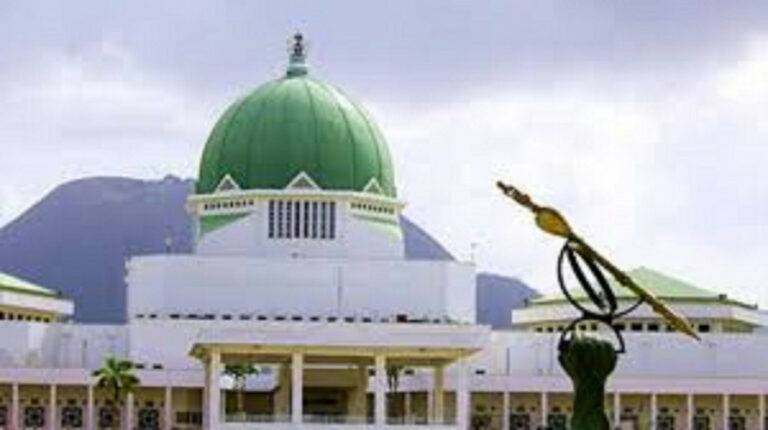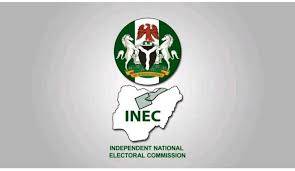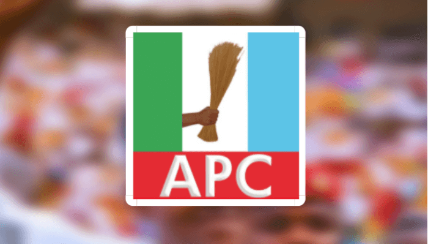By Segun Ayobolu
As we noted in the first part of this piece last week, our title is an adaptation of a presidential address to the Nigerian Political Science Association (NPSA) in 1984 by noted political scientist, Professor Okwudiba Nnoli, titled ‘The masses are the answer.’ As he put it succinctly in his speech, “The truth is that Nigeria cannot be pulled out of its seemingly irreversible slide into economic disaster and unfathomable national humiliation without the active participation of the masses in the politics of their country”. It is not enough for technocrats and specialists to devise sophisticated policies to tackle prevalent economic problems. No less critical and imperative is the vast majority of the people buying into and fervently supporting an incumbent government’s reformist and developmental agenda if any.
All too often, the multitude of the people are indifferent to and many times outrightly hostile to otherwise well-intentioned policies that are in the nation’s interest due largely to insufficient understanding. It must not be assumed that policy issues are too difficult or complex for the ordinary Nigerian to comprehend. Rather, It is the responsibility of those in government to make the majority of the people aware of our national goals and purposes as well as their indispensable role in achieving these objectives. This is particularly so as an unserious and visionless post-independence elite has over the years ignored its historic mission of providing mass education to lift the majority of the people out of illiteracy and ignorance and imbue them with political education and consciousness.
The grave challenges confronting Nigeria today – poverty, disease, ignorance, hunger, mass unemployment, pervasive insecurity-among others cannot be overcome without mobilizing the totality of the people across partisan, ethnic, regional, religious and other sectional divides to be enthusiastic participants in the nation-building project. It is unrealistic and unhelpful to view our problems from a partisan prism solely. Before last week’s Edo State governorship election in which the APC candidate triumphed, some analysts had projected that the ruling party at the centre would be punished in the election for the hardships that the President Bola Tinubu administration’s policies had inflicted on millions of Nigerians. They were proven grossly mistaken.
First, those who reasoned this way ignored the often-cited cliche that all politics is essentially local. Again, the hardships of today are largely a function of the omissions, acts of commission, venality and misbegotten policies of successive post-independence administrations not excluding the sixteen years of the opposition Peoples Democratic Party (PDP) being in power at the centre between 1999 and 2015, a period during which humongous revenues from petroleum were not utilized more astutely to create a self-sustaining and regenerating economy. Furthermore, more people are now holding sub-national levels of government no less responsible for their economic plight than the centre given the humongous resources available to the former, especially with the near tripling of their allocations from the Federation Account since the removal of the fuel subsidy.
Yet, the Edo election again amply confirmed the thesis that the majority of Nigerians are effectively delinked and alienated from the political process. Ever since the incremental and systematic introduction of technology into the conduct of various levels of our political process as from 2011, turnout of people to participate in the political process has continuously dwindled. Opportunities for fraudulent loading of electoral registers, multiple voting, fraudulent thumb printing of ballot papers and stuffing of ballot boxes have receded. Allegations of widespread vote buying by the major political parties in the Edo election demonstrated once again the deficiency of our political parties as vehicles of mass mobilization.
Unable to galvanize people around clear-cut ideologies or philosophical principles, they have resorted to luring voters to the polling units with money and even then with negligible efficacy. For all the parties, their constitutionally stipulated organs are hardly functional. Party chapters at ward and local government levels – the most critical- are largely dormant and inactive. The political parties as organizations are thus marginal utilitarian assets to the governments they produce as they neither add value to public policy nor serve as an effective link between the government and the people.
The parties formed by Chief Obafemi Awolowo in the first and second republics, the Action Group (AG) and Unity Party of Nigeria (UPN), respectively, are still the best examples in post-colonial Nigeria of organizational discipline, effectiveness and vibrancy. The parties had trained Organizing Secretaries that ensured they were active at the grassroots and in touch with the people. This is no doubt why the governments elected on the platform of these parties were also at the forefront in terms of the implementation of progressive welfare policies for the greatest happiness of the greatest number of their citizenry. In the pre-independence era, the National Council of Nigerian Citizens (NCNC) led the mass mobilization of the Nigerian masses that resulted in independence from colonial servitude.
Ironically, it was a military regime, General Ibrahim Babangida’s government (1985-1993) that again took the issue of mass mobilization seriously even if it turned out that its political transition programme was actuated by devious ends. Its Mass Mobilization for Social Justice, Self Reliance and Economic Recovery (MAMSER), especially under the headship of Professor Jerry Gana, worked hard to galvanize Nigerians to participate in the regime’s transition programme as well as patronize made in Nigeria goods in pursuit of the self-reliance component of the Structural Adjustment Programme (SAP). There must certainly be some link between MAMSER’s efforts and the success of the June 12, 1993, presidential election unfortunately annulled by the regime that birthed it.
More than any other administration in post-independence Nigeria and especially since the democratic restoration of 1999, the Tinubu administration has the responsibility to mobilize the people maximally behind its efforts to transcend obstacles that had for decades hindered Nigeria’s progress. Previous administrations had balked at taking the necessary reform initiatives that the Tinubu administration had embarked on. But the resultant hardships for the vast majority are so harsh that the government must ceaselessly engage with the people and make them the bedrock of governance to tide current stormy weather. As this column has had cause to note a number of times in the past, the most critical organ for achieving this objective is the National Orientation Agency (NOA).
Its role in helping to achieve the economic goals of the administration is no less vital than those of the core economic agencies. If we are to get millions of Nigerians to go back to the country’s abundance of arable land and produce food to combat the current food inflation and hunger, they must be mobilized. Significant sections of the populace must be sensitized and mobilized to consume and patronize local goods while aggressively producing domestic products for export to reduce importation, conserve foreign exchange and strengthen the value of our currency. Not even the battle to enhance the security of lives and property can be won without mobilizing the masses of the people to support and work in close collaboration with the security agencies.
Again, the Tinubu administration must be as relentless in explaining its programmes to the people and courting their support just as its adversaries are bent on instigating uprisings and even openly advocating military intervention all because they refuse to come to terms with the outcome of an election they lost clearly. Apart from the scores of Non-Governmental Organizations (NGOs) and Civil Society Groups (CSOs), many of which are elite money-making cartels, one important element of civil society that has not been sufficiently mobilized towards supporting and actively participating in government developmental programmes is the hundreds of thousands of artisanal and trade groups across the country. These associations of vulcanizers, carpenters, mechanics, traders, barbers and scores of others are well organized and meet regularly. They can serve as an effective source of public enlightenment and grassroots galvanization.
Professor Nnoli may have sounded utopian at the time but there is something to take away from his submission that “In the political sphere the problem with Nigeria has been the total exclusion of the people from the political process. The small and middle- level subsistence farmers, rural-rüral farm migrants, plantation workers, industrial blue-collar workers, salaried workers on GL 01-05 and their equivalents in the private sector, day labourers, unemployed and layabouts, underemployed such as street hawkers, petty artisans including roadside mechanics, motorcycle and bicycle repairers, blacksmiths, welders, masons, carpenters, electricians, nightsoil men, petty traders, tramps including touts at the airports and motor parks, beggars and have been consistently excluded from politics”. As the examples of China, Russia, Cuba, India and other countries that have made a breakthrough to modernity show, ordinary people can be transformed from an inert mass to active developmental agents.
A government that will successfully mobilize the majority of its people behind its inevitable but painful policies in hard times must, most importantly, enjoy their trust and confidence. Its leadership and members must be seen to be walking their talk and partaking of the sacrifices they urge on the populace. While receiving former presiding officers of the National Assembly at the presidential villa recently, President Tinubu made the noteworthy point that he was not in government for the money of Nigerians but to offer service. That is one of the most significant public pronouncements he has made since assuming office. As he contemplates his reportedly imminent cabinet reshuffle, he must ensure that his appointees at the highest levels of government are as committed to this ethic as he is both in words and deeds. That is an indispensable element for the support and fidelity of the people.














